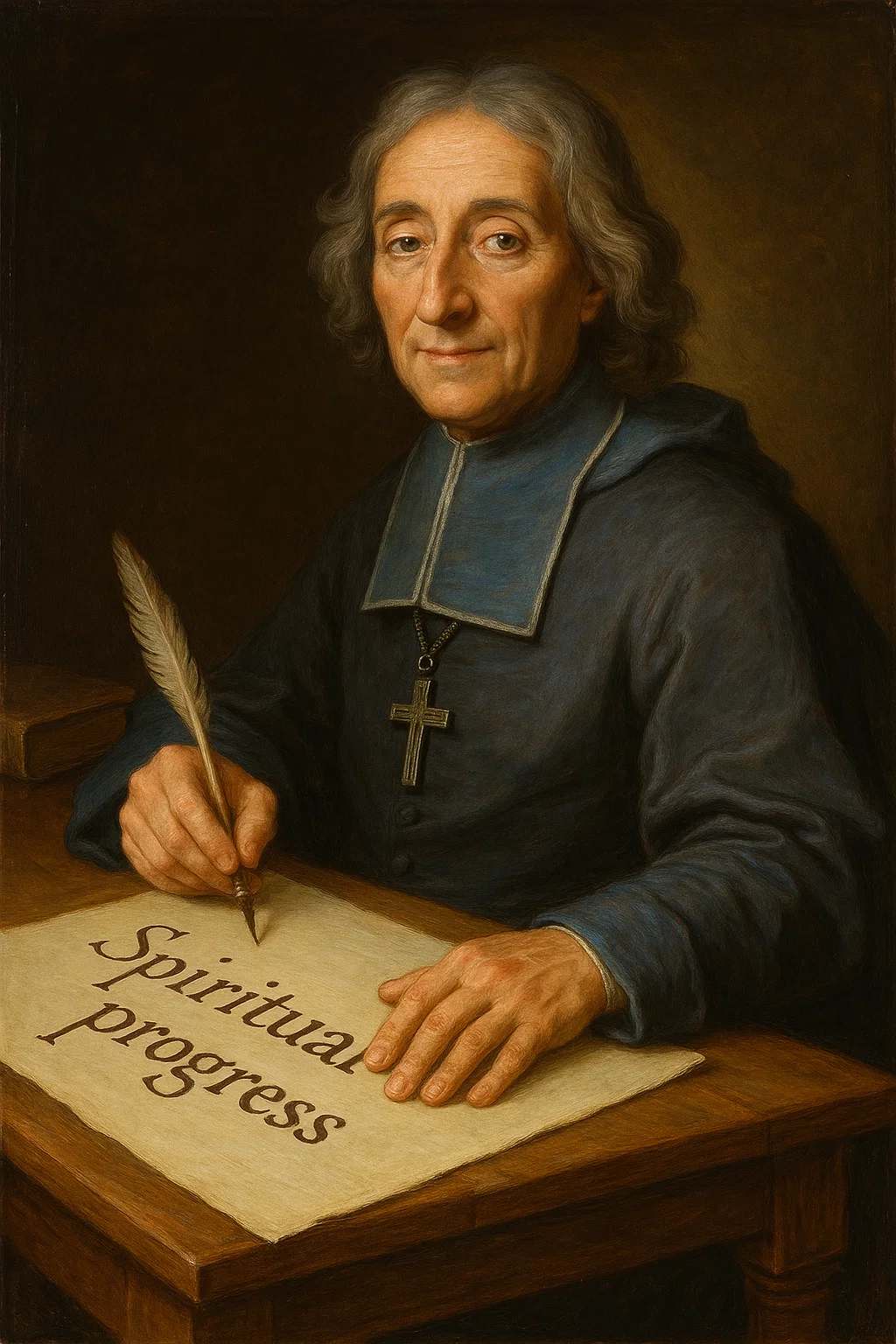François Fénelon was no Reformed Protestant. Indeed, he worked among the Huguenots, seeking to convert them back to Catholicism, albeit in a more gentle and persuasive manner than was typical for his era. He was appointed Archbishop of Cambrai in 1695.
He was not, however, a conventional Catholic. He leaned toward Quietism, a movement that strongly emphasised the grace of God, and the need for deep humility and surrender to Him. He was connected with Madame Guyon, also a quietist and mystic.
In Fénelon’s writings, he emphasised self-denial and surrender to God’s will. He taught that love for God must be pure and without selfish desire:
“Men have a great repugnance to this truth, and consider it to be a very hard saying, because they are lovers of self from self-interest. They understand, in a general and superficial way, that they must love God more than all his creatures, but they have no conception of loving God more than themselves, and loving themselves only for Him. They can utter these great words without difficulty, because they do not enter into their meaning, but they shudder when it is explained to them, that God and his glory are to be preferred before ourselves and everything else to such a degree that we must love his glory more than our own happiness, and must refer the latter to the former, as a subordinate means to an end.”
The theme of quiet, submitted surrender to God is constant in his writings. True devotion is simple, quiet, inward. To know God begins in this kind of humility:
“Two things produce humility when combined; the first is a sight of the abyss of wretchedness from which the all-powerful hand of God has snatched us, and over which he still holds us, as it were, suspended in the air, and the other is the presence of that God who is all.”
Spiritual Progress: Or, Instructions in the Divine Life of the Soul is a devotional and pastoral work, primarily drawn from his writings, with some additions by Guyon. It is a collection of spiritual reflections, letters, and meditations. It is often arranged thematically or in short chapters, each addressing a particular aspect of spiritual growth.
Fénelon has found avid readers among both Catholics and Protestants. A. W. Tozer was fond of quoting him. Fénelon is remembered as a mystic and reformer, advocating for a deep, heart-centred piety that resisted the legalism and cold orthodoxy of his time. His spiritual priorities sometimes seemed to minimise sacraments, ecclesiastical structures, and external forms, which led critics to associate him with Protestant tendencies.
In 1697, his book Maxims of the Saints (Explication des Maximes des Saints) was condemned by Pope Innocent XII, for its quietism. Some of this was a just condemnation of excesses; some of it was the Vatican’s negative reaction to a strong emphasis on grace, which smelled of Protestantism. He submitted to the condemnation, but never retracted his views.
If you dip into Spiritual Progress, you will find a noble but overly idealised form of Christian mysticism: not heretical, but requiring a discerning eye.
